Search by Categories
ERP Software

The #1 Cloud ERP : An AI-powered business management suite, encompassing ERP/Financials, CRM, and ecommerce for more than 41,000 customers.

SAP Business One is an enterprise resource planning (ERP) software that helps small and medium-sized businesses manage their operations. It is also known as SAP B1. Features • Accounting and financials: Track sales opportunities, start the sales cycle, and manage contracts and agreements • Purchasing: Manage purchasing and inventory •...
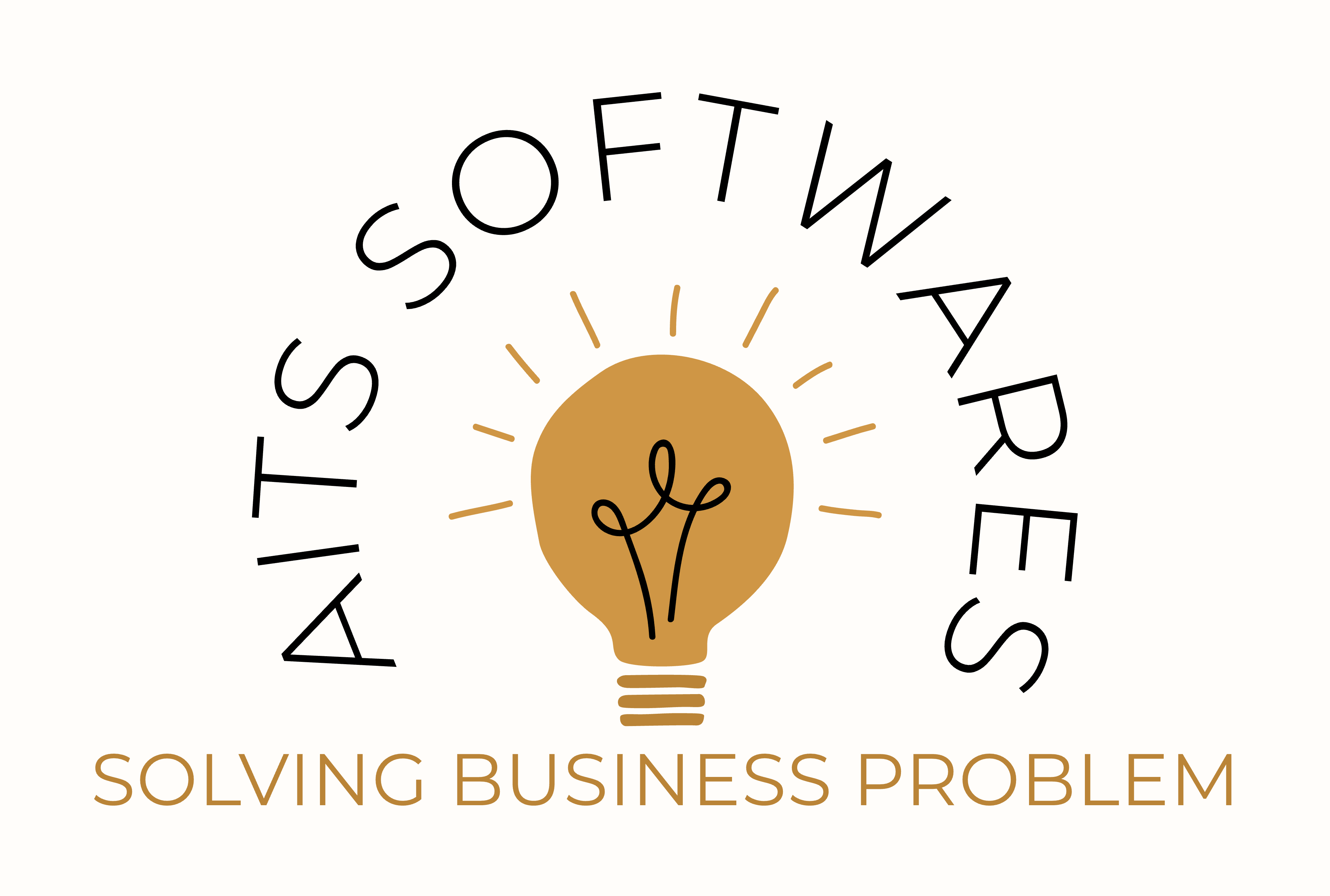
Oracle NetSuite is a cloud-based Enterprise Resource Planning (ERP) software platform designed to help businesses manage and automate various core processes. It offers a suite of integrated applications to handle financials, CRM (Customer Relationship Management), eCommerce, supply chain, inventory, human resources, and more. NetSuite is widely used by companies of...
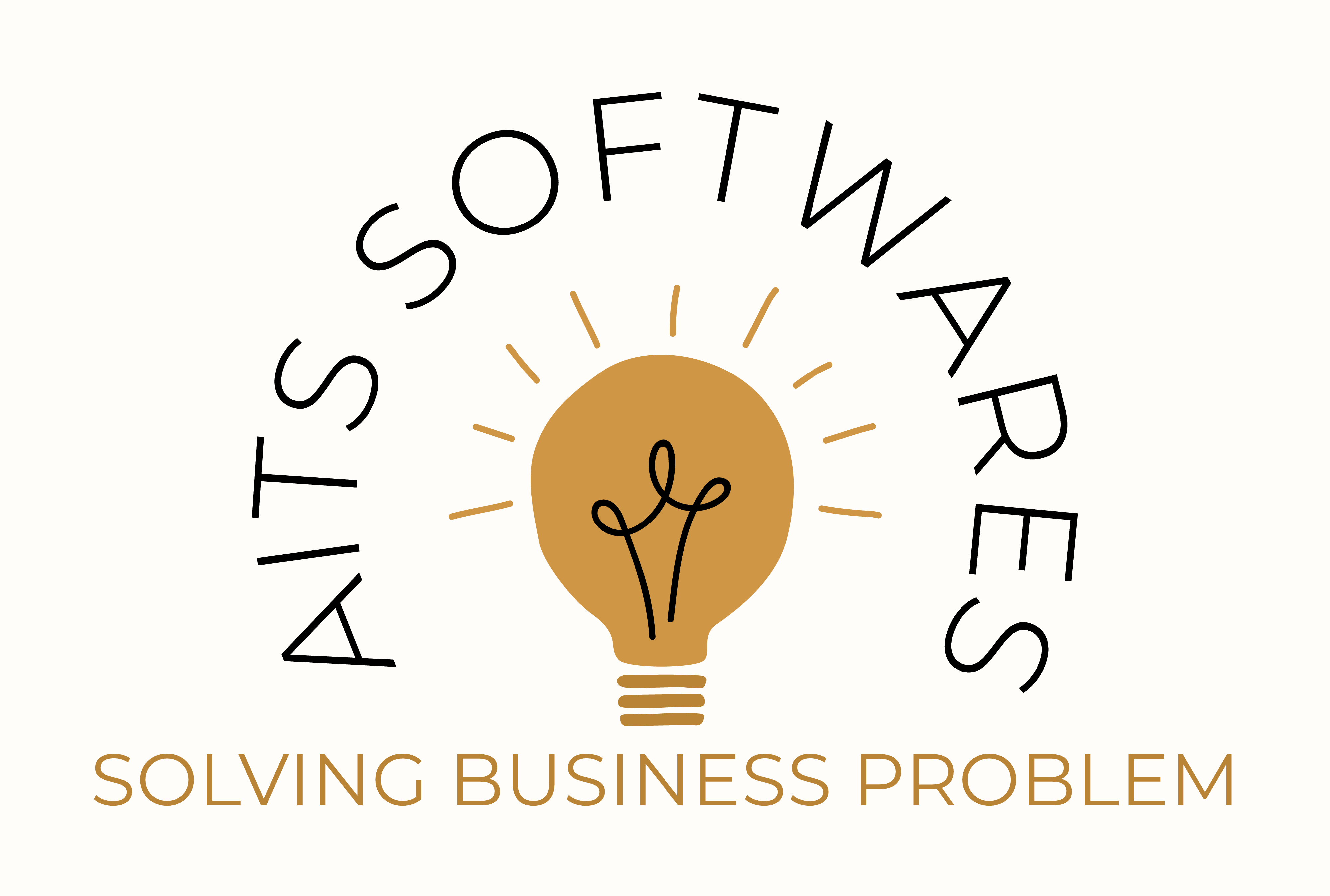
SAP Business One HANA is an integrated Enterprise Resource Planning (ERP) solution specifically designed for small and medium-sized enterprises (SMEs). It combines all critical business functions, including finance, sales, procurement, inventory management, production, and customer relationship management (CRM), into one system. The key differentiator for SAP Business One HANA is...
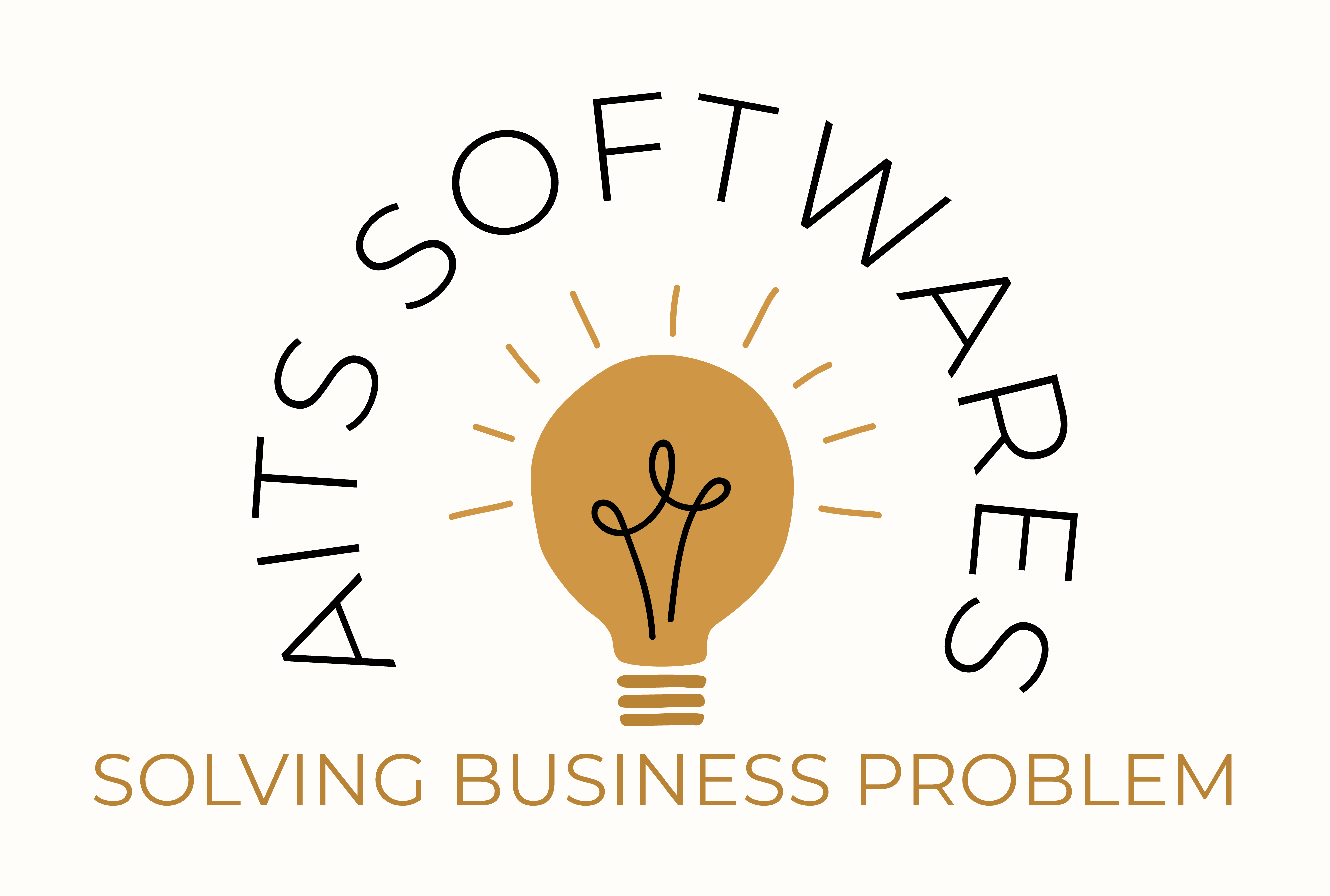
SAP S/4HANA is SAP's next-generation Enterprise Resource Planning (ERP) suite designed to help businesses run efficiently, make better decisions, and improve overall business performance. It stands for SAP Business Suite 4 SAP HANA, where S/4 refers to the next-generation suite and HANA is the underlying in-memory database platform that powers...
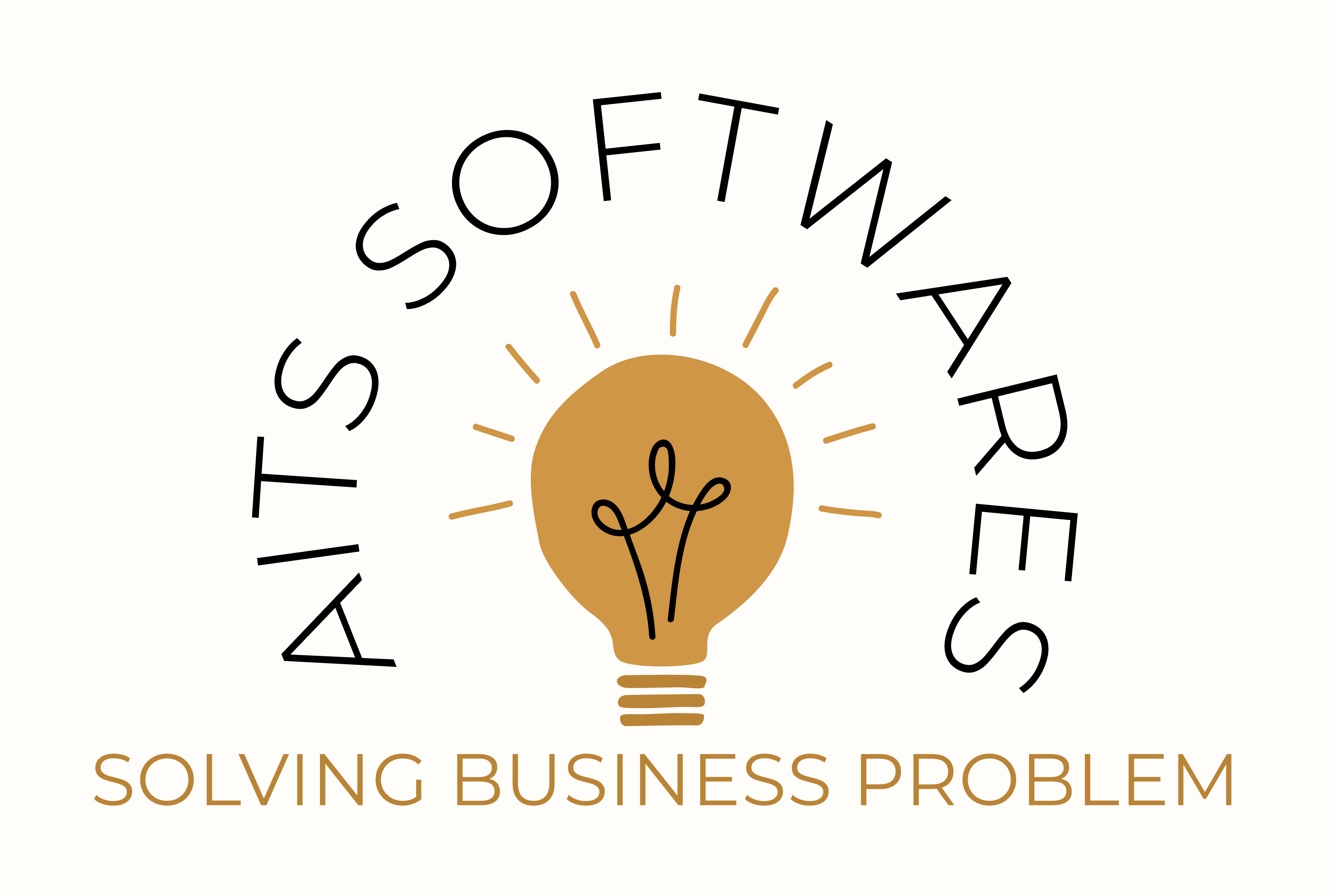
ERPNext is an open-source, cloud-based Enterprise Resource Planning (ERP) software designed for small and medium-sized businesses (SMBs) to streamline and manage their core business processes. ERPNext provides an integrated suite of applications that cover various business functions such as accounting, sales, purchasing, inventory management, human resources, project management, customer relationship...
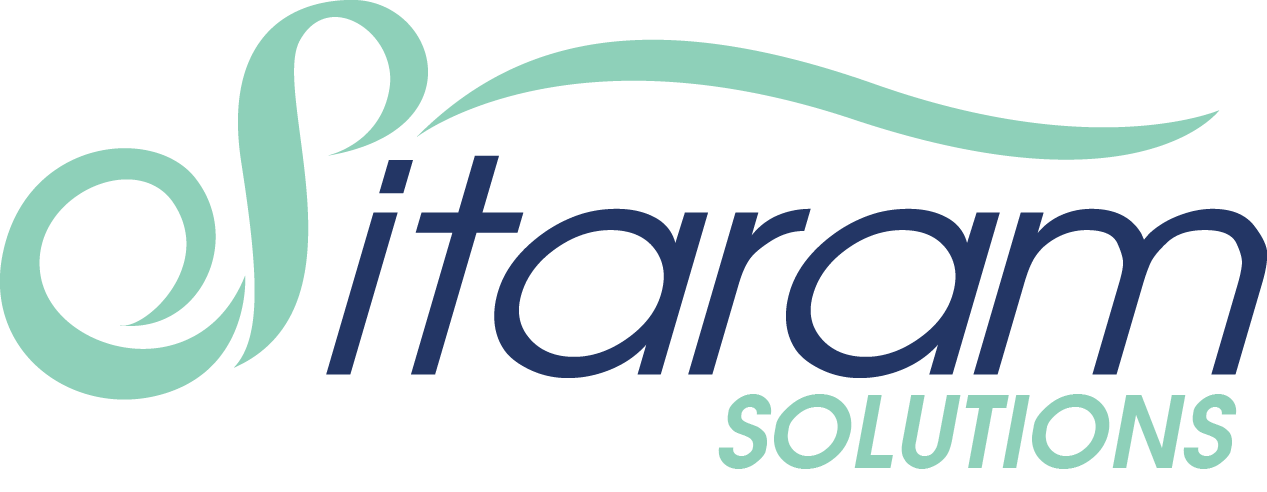
At Sitaram Solutions, we redefine digital transformation by blending cutting-edge Odoo technology with strategic business insights. We don’t just implement software—we transform businesses. Our process begins with a deep dive into your unique operations, using proprietary diagnostic tools to uncover hidden opportunities and streamline processes for maximum efficiency. Our tailored,...

Its a ERP Software for School Management. School can manage student details, take fee including concessions and transportation and reporting related to fee. Academics section to upload home works, assignments. Library section to manage liberary books and issue and return books. Students have app to view homework, assignment, fee deposit...
Top Search Categories
- Accounting Software
- Artificial Intelligence Software
- Billing & Invoicing Software
- Business Intelligence Software
- Call Center Software
- CRM Software
- Digital Marketing Software
- E-commerce Software
- ERP Software
- Event Management Software
- Architecture Softwares
- Facility Management Software
- Financial Management Software
- Firewall Management Software
- GST Software
- Helpdesk Software
- Hospital & Lab Management Software
- Hotel Management Software
- Human Resource Software
- Insurance Software
- Learning Management System
- Legal Software
- Live Chat Software
- Manufacturing Software
- Marketing Software
- Medical Software
- Project Management Software
- Property Management Software
- Retail POS System
- School & Library Management Software
- Supply Chain Management Software
- Tour & Travel Management Software
- Transport Management Software
- VPN Software
- Warehouse Management System
How to Choose the Best ERP System: A Complete Buyer's Guide
ERP stands for Enterprise Resource Planning. ERP software helps large businesses with better insights into data. This helps businesses in taking informed decisions. For large businesses, ERP software helps to manage large amounts of data by automating manual tasks. ERP software is equipped with advanced analytics features, which help businesses to identify trends, forecast demands, and allocate resources accordingly.
ERP can be used in several industries, including chemical, manufacturing, distribution, schools, universities, hospitals, etc., where they need to manage their workload, sales, supply chain management, finance, etc.
For Indian businesses, ERP software holds particular significance due to the unique challenges and opportunities in the market. With India's diverse economy that encompasses large-scale industries, small to medium enterprises (SMEs), and an expanding startup ecosystem, ERP systems cater to varying operational complexities. As businesses grow, managing multi-location operations, tax compliance under GST (Goods and Services Tax), and maintaining supply chains becomes increasingly intricate. ERP software mitigates these complexities by offering scalable solutions tailored to the Indian regulatory and business environment.
The adoption of ERP in India is driven by various industries, including manufacturing, retail, healthcare, IT, and the education sector. The increasing demand for digital transformation, combined with government initiatives like "Digital India," has accelerated the need for these systems. Additionally, the prevalence of SMEs in India underscores the critical role ERP plays by providing cost-effective tools that enable smaller businesses to compete with established players.
Key benefits of ERP software for Indian companies include enhanced efficiency, reduced operational costs, automated compliance reporting, and improved resource utilization. These features not only support day-to-day operations but also empower businesses to scale more effectively in highly competitive markets. Transitioning to ERP software is increasingly becoming a strategic necessity for organizations aiming for sustainable growth in India’s dynamic economic landscape.
Key Factors to Consider While Choosing ERP Software in India
When selecting ERP software for businesses in India, it is essential to assess various factors to ensure the system aligns with organizational needs and market dynamics. A well-informed decision can streamline operations, improve efficiency, and drive long-term growth.
1. Scalability and Flexibility
-
ERP software must be capable of scaling alongside business growth. It should allow the addition of modules or integration with third-party tools.
-
Flexibility in customization is crucial to accommodate unique business requirements, especially for industries with specific workflows.
2. Cost and Licensing
-
Businesses must evaluate upfront costs, subscription fees, maintenance charges, and hidden costs associated with ERP implementation.
-
A clear understanding of licensing models, such as one-time purchases or recurring subscriptions, helps in budgeting effectively.
3. Industry-Specific Features
-
ERP solutions tailored to specific industries like manufacturing, retail, or real estate offer specialized tools and functionalities.
-
Identifying software with sector-specific modules ensures a better fit for operational needs.
4. Integration Capabilities
-
Seamless integration with existing systems—such as CRM, inventory management, and accounting tools—is crucial for operational consistency.
-
Compatibility with emerging technologies like AI, IoT, and cloud computing adds value to long-term usability.
5. User Experience and Accessibility
-
ERP software must provide intuitive interfaces that reduce training time for employees.
-
Accessibility through mobile apps or web-based platforms ensures productivity from any location.
6. Regulatory Compliance
-
In India, ERP solutions should help businesses adhere to GST rules, labor laws, and other region-specific regulations.
-
Automating compliance ensures smoother audits and reduces risks of penalties.
7. Vendor Support and Training
-
Responsive vendor support ensures timely resolution of technical issues during deployment and routine usage.
-
Provision for employee training and comprehensive documentation guarantees optimal utilization of the software.
8. Data Security and Reliability
-
Robust data encryption, backup protocols, and disaster recovery mechanisms are critical in protecting sensitive business information.
-
Reputable ERP providers ensure consistent software performance with minimal downtime.
A thoughtful analysis of these factors allows organizations in India to implement an ERP solution tailored to their operational and strategic goals.
SAP Business One: A Comprehensive ERP Solution for Enterprises
SAP Business One is a versatile ERP solution designed to cater to small and mid-sized enterprises across diverse industries. Its unified platform helps businesses manage core processes, including financials, supply chain, sales, and customer relations, ensuring streamlined operations and improved efficiency. Built with scalability in mind, this software adapts to evolving enterprise needs, supporting growth without compromising performance.
Key Features
SAP Business One offers a wide range of features to simplify business management:
-
Finance and Accounting: The software includes robust tools for managing general ledger, accounts payable/receivable, budgeting, and banking transactions.
-
Inventory and Operations Management: It enables seamless inventory tracking, warehouse management, and production planning to optimize supply chain processes.
-
Sales and Customer Management: Comprehensive customer relationship modules cater to sales management, lead tracking, and post-sales service.
-
Reporting and Analytics: Equipped with real-time analytics tools, it provides actionable insights for data-driven decision-making.
-
Integration Capabilities: SAP Business One integrates with various third-party applications, enhancing adaptability and customization.
Pricing Structure
SAP Business One follows a flexible pricing model dependent on factors such as company size, user requirements, and deployment preference (on-premise or cloud). Licensing costs typically include upfront charges for implementation and monthly fees for maintenance and support. Enterprises can choose between perpetual licensing or subscription packages, providing options tailored to their financial strategies.
Benefits
The software helps businesses achieve operational excellence through:
-
Efficiency Gains: By automating repetitive tasks and centralizing data, it reduces workloads and error rates.
-
Scalability: Its modular design allows enterprises to add functionalities as their needs grow.
-
Improved Decision-Making: Data analytics tools provide clarity and future projections to support informed decisions.
-
Global Reach: With localization options, businesses can easily operate in international markets while maintaining compliance.
SAP Business One remains an ideal ERP choice for enterprises seeking reliability and modular growth options.
Tally ERP: Trusted Software for Small and Medium Businesses
Tally ERP stands out among enterprise resource planning solutions, particularly tailored for small and medium-sized businesses (SMBs). Renowned for its simplicity, powerful features, and adaptability, Tally ERP has been a staple in the Indian market, assisting businesses in managing critical operations effectively and efficiently.
Tally ERP packs a comprehensive suite of features that cater to the diverse needs of SMBs. Its robust accounting module is widely recognized, automating tasks such as ledger management, inventory tracking, tax calculations, and payroll processing. The software also helps businesses comply with statutory requirements like GST filing, significantly easing the administrative burden. Moreover, its multi-lingual capabilities make it accessible to a broader audience, accommodating India’s diverse linguistic landscape.
A hallmark strength of Tally ERP is its user-friendly interface, which requires minimal technical expertise to operate. This accessibility allows SMB owners and employees to quickly adapt to the system, reducing the learning curve. In addition to its core functionality, the software is highly scalable, providing the flexibility to grow alongside the business. From small retail shops to larger manufacturing firms, Tally ERP adjusts to meet evolving operational demands.
Other standout features include real-time data access, which provides a clear view of business metrics at any given time; data synchronization across multiple branches or locations; and advanced security measures for protecting sensitive information. Furthermore, it offers both on-premise and cloud-based deployment options.
Tally ERP is competitively priced, making it an economical choice for small and medium enterprises. Businesses can purchase tailored plans, ensuring they pay only for the features they need. With robust customer support and continuous updates, Tally ERP remains a trusted solution in the ever-changing landscape of business software.
Oracle NetSuite: Scalable and Cloud-Based ERP for Growing Companies
Oracle NetSuite is a robust, cloud-native ERP solution designed to meet the needs of dynamic, growing businesses. It offers a comprehensive suite of functionalities aimed at integrating core business processes while maintaining scalability and adaptability. Known for its modular architecture, it provides organizations the flexibility to adopt features that align with their specific needs. As a Software-as-a-Service (SaaS) platform, it eliminates the need for on-premise infrastructure, ensuring seamless updates and continuous access to new features.
Key Features
-
Integrated Financial Management: NetSuite delivers comprehensive financial planning, reporting, and forecasting tools. Businesses can automate key financial processes such as accounts payable and receivable while maintaining compliance with global tax regulations.
-
Supply Chain and Inventory Management: Its advanced supply chain module helps streamline procurement, inventory tracking, and distribution processes, ensuring real-time insights across the supply chain.
-
Customer Relationship Management (CRM): The integrated CRM system enables enterprises to manage customer data, improve sales effectiveness, and enhance customer satisfaction.
-
Human Resources (HR) Management: With integrated workforce management tools, companies can manage payroll, staffing, and employee records through a unified interface.
-
Customizability and Scalability: Businesses can easily adapt NetSuite to their growing and changing operations through customizable dashboards and modules.
Benefits
-
Cost-Effective Deployment: Its SaaS architecture eliminates maintenance costs and minimizes IT overhead.
-
Global Reach: Multi-currency and multi-language support make it an ideal choice for organizations with an international presence.
-
Data Accessibility: The cloud-based infrastructure allows on-the-go access via web browsers or mobile devices, ensuring enhanced collaboration and operational efficiency.
-
Analytics and Reporting: Advanced analytics and real-time dashboards enable data-driven decision-making.
Oracle NetSuite is tailored for forward-thinking enterprises looking for a scalable and cloud-first ERP solution that ensures operational agility and business growth. Its broad feature set empowers organizations to streamline operations, boost efficiency, and meet the demands of a competitive market.
Microsoft Dynamics 365: Advanced Features for Tech-Savvy Organizations
Microsoft Dynamics 365 is a robust ERP solution tailored to meet the needs of organizations that demand advanced capabilities and scalability. Combining CRM and ERP functionalities into a unified platform, it empowers businesses to optimize operations, enhance customer engagement, and drive informed decision-making.
Key Features of Microsoft Dynamics 365
-
Artificial Intelligence Integration: Leveraging AI, Microsoft Dynamics 365 provides predictive analytics, intelligent automation, and tailored insights for data-driven decision-making. AI tools like Customer Insights and Sales Insights ensure businesses stay ahead of industry trends.
-
Scalability and Customization: This platform is highly scalable, making it ideal for growing organizations. It supports extensive customization, allowing businesses to modify workflows, applications, and dashboards for unique operational needs.
-
Cloud Capabilities: A cloud-first approach increases accessibility, enabling users to access critical business information from anywhere. This also ensures faster deployment and reduces infrastructure dependency.
-
Advanced Analytics and Reporting: Built-in Power BI integration enhances data visualization and reporting. With real-time dashboards and interactive reports, organizations can gain a comprehensive understanding of performance metrics.
-
Seamless Integration with Microsoft Ecosystem: It integrates effortlessly with Microsoft Office 365, Teams, and Azure, creating a connected ecosystem for enhanced collaboration and efficiency.
Benefits for Organizations
-
Enhanced Collaboration: With native integrations across Microsoft tools, teams can work seamlessly without switching between platforms.
-
Improved Decision-Making: The AI-driven insights and real-time data empower businesses to make proactive, strategic decisions.
-
Flexibility: The modular structure of Microsoft Dynamics 365 allows organizations to adopt specific functionalities as needed, reducing the cost of unnecessary features.
Best Fit for
Microsoft Dynamics 365 is ideal for mid-sized to large enterprises with complex business processes. Its advanced features cater to industries like retail, manufacturing, and professional services, where agility and innovation are key to staying competitive.
Zoho ERP: Streamlined Solutions Tailored for Startups
Zoho ERP emerges as a comprehensive and cost-effective platform tailored specifically to meet the dynamic needs of startups and small businesses. By focusing on scalability and simplicity, Zoho ERP ensures that businesses in their growth stages can effectively manage their core processes without heavy investments or unnecessary complications. This cloud-based ERP solution is known for its integration-friendly design and modular approach, making it an ideal choice for startups seeking flexibility and functionality.
Zoho ERP offers essential modules that cover key business operations, including:
-
Finance Management: Enables seamless automation of accounting tasks, expense tracking, and financial reporting.
-
Inventory Management: Optimizes inventory control with tools for order tracking, stock updates, and demand forecasting.
-
Customer Relationship Management (CRM): Ensures better customer engagement with its built-in CRM functionality, fostering sales growth.
-
Human Resource Management (HR): Assists in payroll processing, attendance tracking, and employee data consolidation, ideal for small teams.
-
Project Management: Simplifies project planning and tracking, ensuring deadlines and goals are consistently met.
One of the key highlights of Zoho ERP is its user-friendly interface, which minimizes the learning curve, allowing startups to get up and running quickly. Its affordability is another significant advantage, as most modules can be accessed via a subscription-based pricing model, making it feasible for budget-conscious businesses.
Additionally, Zoho ERP is designed to integrate effortlessly with other Zoho apps and third-party tools, offering startups the ability to create a more holistic operational infrastructure. Its mobile-friendly design ensures that businesses can monitor and manage tasks on-the-go, enhancing agility.
With strong data analytics and customizable dashboards, Zoho ERP empowers startups with actionable insights. This enables better decision-making and supports long-term growth strategies.
Odoo ERP: Open-Source Platform for Customizable Business Needs
Odoo ERP stands out as a highly adaptable, open-source enterprise software solution tailored to meet diverse business needs across industries. Designed with modularity in mind, it offers companies the flexibility to pick and choose applications that address their unique operational requirements, making it ideal for small to large enterprises seeking specific functionalities without overburdening their systems.
Key Features
Odoo ERP provides a suite of integrated business modules covering various domains, including:
-
Sales and CRM: Enables efficient client management with tools for customer relationship management, sales automation, and performance tracking.
-
Accounting and Finance: Offers robust tools for invoicing, expense tracking, financial reporting, and compliance.
-
Inventory Management: Facilitates monitoring, control, and optimization of supply chain processes.
-
Human Resources (HR): Streamlines recruitment, employee management, and payroll processing.
-
E-commerce and Website Management: Simplifies online store creation and website customization to align with company branding.
-
Project and Task Management: Enhances collaboration and productivity with advanced workflow tools.
Pricing
The pricing of Odoo ERP is highly flexible, reflecting its modular architecture. Businesses can opt for the Community Edition (free of cost) or the Enterprise Edition, which includes premium features and cloud hosting. The Enterprise Edition operates on a subscription basis, with charges depending on the number of users and selected modules.
Benefits
-
Scalability: Accommodates the growth of businesses by allowing seamless integration of new modules.
-
Customizability: An open-source nature provides businesses the liberty to modify or develop custom modules.
-
Ease of Use: Intuitive and user-friendly interface requiring minimal user training.
-
Community and Developer Support: A strong global community ensures continuous updates, plugins, and support.
-
Cost-Effectiveness: Offers competitive pricing compared to proprietary ERP systems.
Odoo ERP remains an appealing choice for organizations seeking a comprehensive yet flexible solution to enhance operational efficiency and facilitate growth.
Marg ERP: Cost-Effective Choice for Retailers and Distributors
Marg ERP is a highly efficient and affordable solution tailored to meet the needs of small to medium-sized retailers and distributors in India. It allows businesses across a broad spectrum of industries, such as pharmaceuticals, FMCG, and grocery, to optimize operations, streamline inventory management, and enhance customer satisfaction.
The standout feature of Marg ERP is its adaptability. The software offers customizable modules for billing, inventory control, GST compliance, payroll management, and accounting. Retailers can generate detailed reports, automate invoicing, and even track multi-location warehouses, ensuring smooth business operations. Distributors benefit from tools like sales order management, dispatch mechanisms, and daily performance tracking, which boost productivity.
Marg ERP's affordability makes it accessible to businesses that prioritize budget-friendly solutions without compromising functionality. The platform charges on a one-time license fee model, which includes core features and requires no recurring subscription costs. Additional plug-ins are available at competitive rates, ensuring flexibility. Businesses can also integrate Marg ERP with third-party applications for extended capabilities, such as e-commerce connections or barcode-scanning systems.
Key advantages include its multilingual support and a user-friendly interface, which cater to India's diverse demographic of business owners. The software is compatible with both desktop and cloud-based setups, offering scalability and convenience. Marg ERP also provides extensive training for users and offers 24/7 customer service, ensuring prompt issue resolution.
With its focus on delivering cost-effective solutions, Marg ERP addresses the operational challenges faced by retailers and distributors. This ERP tool empowers businesses to handle dynamic customer demands and complex supply chain workflows, strengthening profitability and enabling long-term growth.
Focus ERP: Simplified Tools for Core Business Operations
Focus ERP is a comprehensive software solution designed to streamline and optimize core business functions across industries. It offers a range of modules tailored to meet diverse business requirements, making it accessible for enterprises of varying sizes. With its feature-rich interface and emphasis on simplicity, Focus ERP enables businesses to improve productivity and maintain superior operational efficiency.
Key Features of Focus ERP
-
Modular Design: Offers flexibility through modules such as Accounting, Inventory, Sales, Procurement, and HR, allowing businesses to adopt only what they need.
-
Cloud-Based Accessibility: Supports cloud hosting for seamless data access from any location, enhancing mobility and collaboration.
-
Customizable Dashboards: Provides visually appealing dashboards and reporting tools, enabling users to track key performance indicators in real time.
-
Workflow Automation: Automates routine processes, minimizing manual intervention and reducing the risk of human error.
-
Compliance Management: Integrates compliance tools to adhere to local taxation and regulatory frameworks, such as GST compliance in India.
-
Multi-Language and Multi-Currency Support: Accommodates global business operations with in-built capabilities for multiple languages and currencies.
Benefits for Businesses
Focus ERP simplifies complexities in operations, ensuring smooth coordination between departments. By centralizing data and processes, it eliminates redundancies and improves overall decision-making. Automated workflows save time and costs, while the platform’s scalability ensures it adapts to the growing needs of businesses.
This ERP tool is particularly well-suited for industries like retail, distribution, manufacturing, and real estate, where operations are dynamic and require constant monitoring.
Pricing Structure
Focus ERP employs a pricing model that is competitive and flexible. Options include both subscription-based plans for cloud access and one-time licensing for on-premises deployment. The pricing depends on the modules chosen, the number of users, and customization requirements. This scalability allows businesses to invest according to their specific needs and growth potential.
Ramco ERP: Cutting-Edge Innovation in a Cloud-Based Platform
Ramco ERP stands as a leading enterprise resource planning solution, widely recognized for its innovative capabilities and cloud-centric approach. Designed to meet the dynamic needs of businesses across industries, Ramco ERP integrates advanced technology with customizable modules to streamline processes, enhance productivity, and foster scalability. Its distinct cloud-first architecture sets it apart in the ERP landscape, enabling users to access critical features and functionalities over secure networks without compromising data integrity.
Key Features of Ramco ERP
Ramco ERP delivers a comprehensive suite of features tailored to address diverse operational challenges. Some notable features include:
-
Cloud-Based Accessibility: Provides users with real-time access to data, enabling agility and seamless collaboration across multiple locations.
-
Highly Scalable Platform: Supports modular expansion, allowing businesses to adapt the system to their growing requirements effortlessly.
-
Advanced Automation: Incorporates AI-driven tools for predictive analytics, automated workflows, and simplified decision-making.
-
User-Friendly Interface: Offers intuitive dashboards and customization options for enhanced usability and navigation.
-
Robust Compliance Tools: Ensures adherence to regulatory standards with built-in compliance frameworks tailored for different geographies.
Benefits of Implementing Ramco ERP
Implementing Ramco ERP empowers organizations with tangible benefits that drive efficiency and innovation. These benefits include:
-
Operational Excellence: Streamlines redundant tasks, reduces human errors, and optimizes resource utilization.
-
Cost Reduction: Eliminates the need for heavy infrastructure expenses due to its cloud-based setup.
-
Data-Driven Insights: Facilitates informed decision-making with real-time analytics and comprehensive reporting tools.
-
Global Reach: Supports multinational operations with features for multi-currency transactions and multilingual compatibility.
-
Flexibility in Deployment: Offers on-cloud, on-premise, and hybrid deployment options to suit varied business needs.
Competitive Edge of Ramco ERP
Ramco ERP distinguishes itself in the crowded marketplace through continuous adoption of emerging technologies, such as blockchain and machine learning. Its focus on providing an adaptable platform ensures that businesses can leverage innovations without undergoing cumbersome software migrations. The ERP also excels in delivering industry-specific functionalities for sectors such as construction, aviation, logistics, and manufacturing, making it a versatile choice for enterprises.
By prioritizing holistic solutions in a fast-moving digital environment, Ramco ERP positions itself as a dependable partner for businesses looking to enhance agility, scalability, and compliance efforts.
Comparison Table: Key Features and Benefits of Leading ERP Systems
ERP systems are designed to streamline business operations by integrating various functions into one unified platform. Below is a detailed comparison of key features and benefits offered by leading ERP software solutions available in India.
Key Features Comparison
-
SAP Business One
-
Scalable and customizable for small to medium-sized businesses (SMBs).
-
Real-time analytics and reporting capabilities.
-
Integration with IoT, AI, and machine learning technologies.
-
Compatible with cloud and on-premises deployment.
-
Oracle NetSuite
-
Comprehensive financial management tools with automation.
-
End-to-end visibility across supply chain processes.
-
Built-in eCommerce capabilities.
-
Global compliance for multinational organizations.
-
Microsoft Dynamics 365
-
Highly user-friendly interface integrated with Microsoft applications.
-
Advanced customer relationship management (CRM) features.
-
AI-driven insights to enhance operational efficiency.
-
Modular approach allowing businesses to build functionalities as needed.
-
Tally ERP 9
-
Simplified accounting and payroll management tools.
-
GST-compliant reporting and audit features tailored for the Indian market.
-
Quick adaptation for small businesses and retailers.
-
Offline capabilities with minimal resource requirements.
Benefits Comparison
-
Scalability and Customization: SAP Business One and Microsoft Dynamics 365 provide enterprise-grade scalability, making them suitable for growing companies, while Tally ERP 9 focuses on SMBs with core straightforward functions.
-
Ease of Integration: Oracle NetSuite offers robust integration capabilities with third-party tools, whereas Microsoft Dynamics 365 facilitates seamless integration within its ecosystem.
-
Cost-Effectiveness: Tally ERP 9 tends to have a lower cost of ownership, appealing to smaller businesses. In contrast, SAP Business One’s pricing caters to advanced customization.
-
Cloud Compatibility: Microsoft Dynamics 365 and Oracle NetSuite are cloud-native, ensuring data accessibility, whereas SAP offers hybrid deployment models.
Businesses reviewing ERP systems must prioritize their specific operational needs and budget considerations when selecting the ideal solution.
How ERP Implementation Streamlines Business Operations in India
Enterprise Resource Planning (ERP) systems have transformed how businesses operate, enabling streamlined workflows and improving overall efficiency. In India, ERP implementation addresses many challenges faced by industries, such as fragmented processes, compliance complexities, and dynamic market demands. By integrating various business functions into a centralized platform, ERP systems ensure cohesive and data-driven decision-making.
ERP software simplifies financial management through automated billing, tax compliance with GST regulations, and real-time financial reporting. Indian businesses benefit from localized modules tailored to meet specific regulatory requirements, reducing errors and ensuring timely submissions. By automating tedious manual processes, employees can focus on core tasks, improving productivity.
Operational efficiency also improves as ERPs offer robust supply chain and inventory management tools. Businesses can track inventory levels, forecast demand, and manage procurement seamlessly. This is especially crucial in India’s diverse retail and manufacturing sectors, where inventory optimization minimizes waste and maximizes profitability.
Human Resource Management (HRM) is another critical area streamlined by ERPs. Automated attendance tracking, payroll processing compliant with Indian labor laws, and streamlined recruitment processes ensure workforce management remains hassle-free. Furthermore, ERPs deliver real-time data analytics, enabling managers to analyze employee performance and enhance workforce planning.
Cross-departmental integration fosters better communication within Indian enterprises. For instance, sales and production teams can align effortlessly through interconnected ERP systems, reducing delays and miscommunication. Additionally, cloud-based ERP solutions have become increasingly popular, offering scalability, cost-effectiveness, and anytime accessibility.
With multilingual support and mobile-friendly interfaces, modern ERP solutions cater to the multifaceted needs of Indian businesses. Companies, whether SMEs or large corporations, experience faster decision-making and improved operational transparency. By centralizing all data and processes, ERP implementation empowers organizations in India to stay competitive in an evolving economic environment.
Conclusion: Selecting the Right ERP Software for Your Business Needs
The process of choosing the right ERP software requires careful assessment of a company's unique operational requirements, budget, and growth expectations. Recognizing that ERP systems can significantly influence organizational efficiency, businesses need to evaluate software solutions against their core objectives systematically. Factors such as scalability, ease of integration, and user-friendliness are paramount in determining suitability.
To start, businesses should identify their most critical pain points and prioritize functionalities that address those areas. Whether it is optimizing inventory management, enhancing customer relationship tracking, or streamlining financial reporting, the ERP system must align with these goals. Additionally, industry-specific needs, such as compliance with regulatory standards or specialized modules for manufacturing or retail, must be considered.
Budget constraints also play a decisive role. Companies need to compare pricing models, including one-time implementation costs, subscription fees, customization expenses, and long-term maintenance charges. Cloud-based ERP solutions often offer flexibility in pricing and may be more viable for small and medium-sized enterprises. In contrast, on-premise solutions might suit organizations with stringent security requirements.
Another key factor in selection involves usability and employee adoption. Ideal ERP software should offer intuitive interfaces, adequate training resources, and ongoing support for troubleshooting issues. Vendors that provide robust customer service solutions and address concerns promptly help build trust and ensure seamless operations.
Lastly, scalability and future readiness of the software are critical. Businesses should invest in ERP systems capable of growing alongside the organization, avoiding frequent migrations or costly upgrades. By examining performance metrics, customer reviews, and vendor reputation, companies can narrow down options effectively, ensuring the chosen software aligns with both present needs and future aspirations

